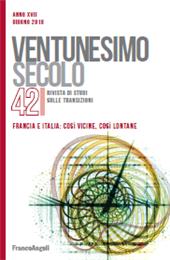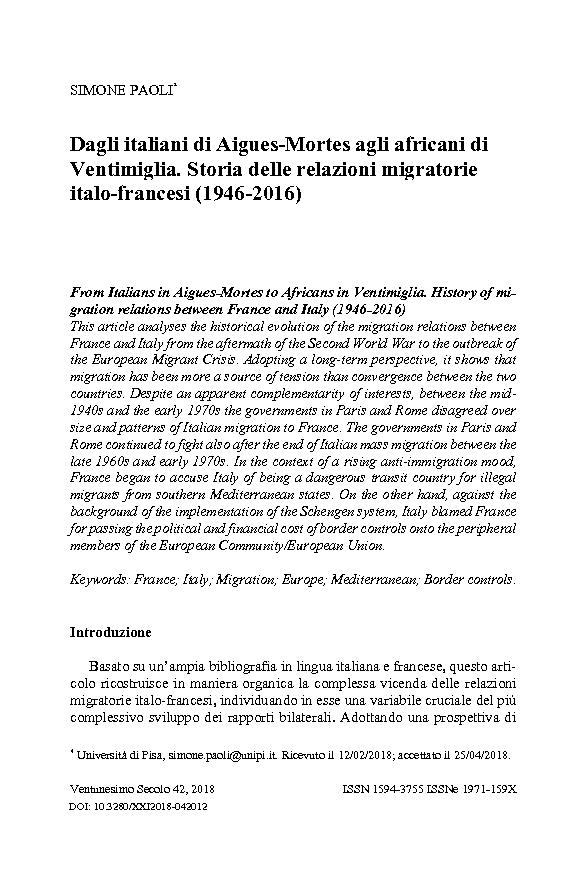Dagli italiani di Aigues-Mortes agli africani di Ventimiglia : storia delle relazioni migratorie italo-francesi (1946-2016)
201-219 p.
This article analyses the historical evolution of the migration relations between France and Italy from the aftermath of the Second World War to the outbreak of the European Migrant Crisis. Adopting a long-term perspective, it shows that migration has been more a source of tension than convergence between the two countries. Despite an apparent complementarity of interests, between the mid- 1940s and the early 1970s the governments in Paris and Rome disagreed over size and patterns of Italian migration to France. The governments in Paris and Rome continued to fight also after the end of Italian mass migration between the late 1960s and early 1970s. In the context of a rising anti-immigration mood, France began to accuse Italy of being a dangerous transit country for illegal migrants from southern Mediterranean states.
On the other hand, against the background of the implementation of the Schengen system, Italy blamed France for passing the political and financial cost of border controls onto the peripheral members of the European Community/European Union. [Publishers' text].
-
Artículos del mismo número (disponibles individualmente)
-
Información
Código DOI: 10.3280/XXI2018-042012
ISSN: 1594-3755
KEYWORDS
- France, Italy, Migration, Europe, Mediterranean, Border controls



